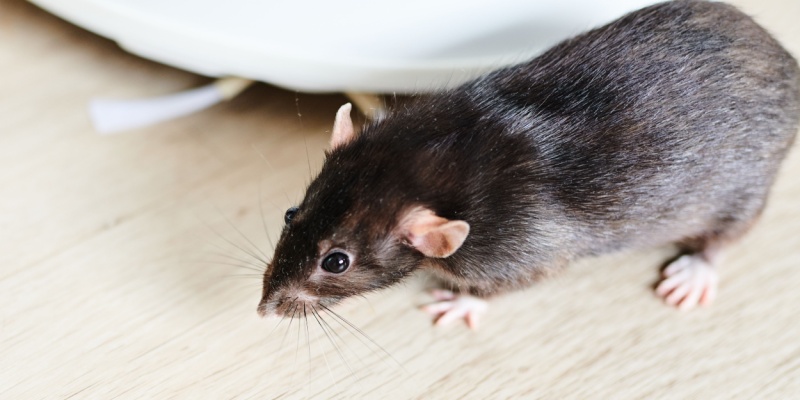If you’re dealing with a rodent problem, you may be considering handling it yourself before calling a professional. DIY rodent control methods can be appealing because they seem cost-effective and easy to implement. However, the question many homeowners face is: does DIY rodent control really work? While there are some cases where DIY methods can help, there are limitations to what they can achieve, especially if the infestation is large or persistent.
Here’s what you need to know about the effectiveness of DIY rodent control and when it’s time to call in professional help:
1. DIY Methods Can Address Small Infestations
For minor rodent problems—such as spotting a single mouse in your home—DIY methods can sometimes be enough to address the issue. Common DIY rodent control options include:
- Traps: Snap traps and live traps are widely available and can be effective for catching individual rodents. These traps work best when placed in high-traffic areas where you’ve noticed signs of rodent activity, such as droppings or gnaw marks.
- Baits: Poison baits, also known as rodenticides, are another option for DIY rodent control. These are placed in areas where rodents are active and can help reduce their population. However, baits should be used cautiously, especially if you have pets or children in the home.
- Natural Repellents: Some homeowners try natural rodent repellents like peppermint oil, mothballs, or ultrasonic devices that claim to deter rodents. While these methods may temporarily discourage rodents from entering certain areas, they’re often not enough to solve an existing infestation.
If you’ve only seen one or two rodents, setting traps and using bait can work. However, DIY methods have limitations when it comes to larger or more established infestations.
2. DIY Rodent Control Has Its Challenges
While DIY methods may be effective for small infestations, they often fall short when dealing with a larger population of rodents or a hidden infestation. Here are some common challenges with DIY rodent control:
- Rodents Multiply Quickly: Mice and rats reproduce rapidly. A single pair of mice can produce multiple litters in a short period of time, and an untreated infestation can grow out of control. DIY methods often fail to address the root of the problem, meaning rodents can continue to breed even after some are caught.
- Rodents Are Elusive: Mice and rats are skilled at hiding in hard-to-reach places like walls, attics, or basements. While DIY traps may catch a few rodents, they don’t always reach the entire population. Missing a nest or overlooking an entry point can lead to ongoing problems.
- Trap Avoidance: Rodents are cautious and can become “trap-shy,” avoiding new objects placed in their environment. This makes DIY traps less effective over time, as rodents learn to avoid them.
3. Health Risks and Contamination
Rodents carry diseases and can contaminate surfaces, food, and water with their droppings, urine, and saliva. DIY methods, such as setting traps or cleaning up rodent droppings, expose homeowners to these health risks, particularly if the infestation is widespread. Improper handling of traps, baits, or contaminated areas can lead to unintended exposure to harmful pathogens.
Professional pest control services not only eliminate the infestation but also take steps to sanitize and decontaminate affected areas, reducing the risk of illness for your family.
4. Long-Term Solutions Require Expertise
While DIY methods may provide temporary relief, they rarely offer long-term solutions. Rodents are persistent, and unless you address the underlying factors—such as how they are entering your home or what’s attracting them—new rodents can quickly take their place.
Professional exterminators are trained to:
- Identify Entry Points: A thorough inspection by a pest control expert can reveal gaps, cracks, or other entry points where rodents are getting in. Sealing these entry points is crucial for preventing future infestations.
- Eliminate the Entire Infestation: Pest control professionals have the tools and knowledge to eliminate an entire rodent population, including hidden nests and hard-to-reach areas. This ensures that the problem is fully addressed.
- Provide Long-Term Prevention: In addition to getting rid of rodents, exterminators can recommend or implement long-term prevention strategies, such as improving sanitation practices, reducing clutter, and sealing vulnerable areas of your home.
5. When to Call a Professional
If you’ve been using DIY methods and the rodent problem persists, or if you’re dealing with a larger infestation, it’s time to call a professional. Pest control experts offer comprehensive solutions that go beyond what DIY methods can achieve. They can assess the extent of the infestation, use safe and effective treatments, and provide preventative measures to ensure the rodents don’t return.
DIY rodent control can work for small, isolated infestations, but it’s often not enough to handle larger or more entrenched rodent problems. While traps and baits may catch a few rodents, they rarely address the root of the issue or prevent future infestations. For long-term success, especially in the case of a larger infestation, it’s best to seek the help of a professional pest control service. A trained exterminator can provide effective, safe, and lasting solutions that protect your home from rodents.
